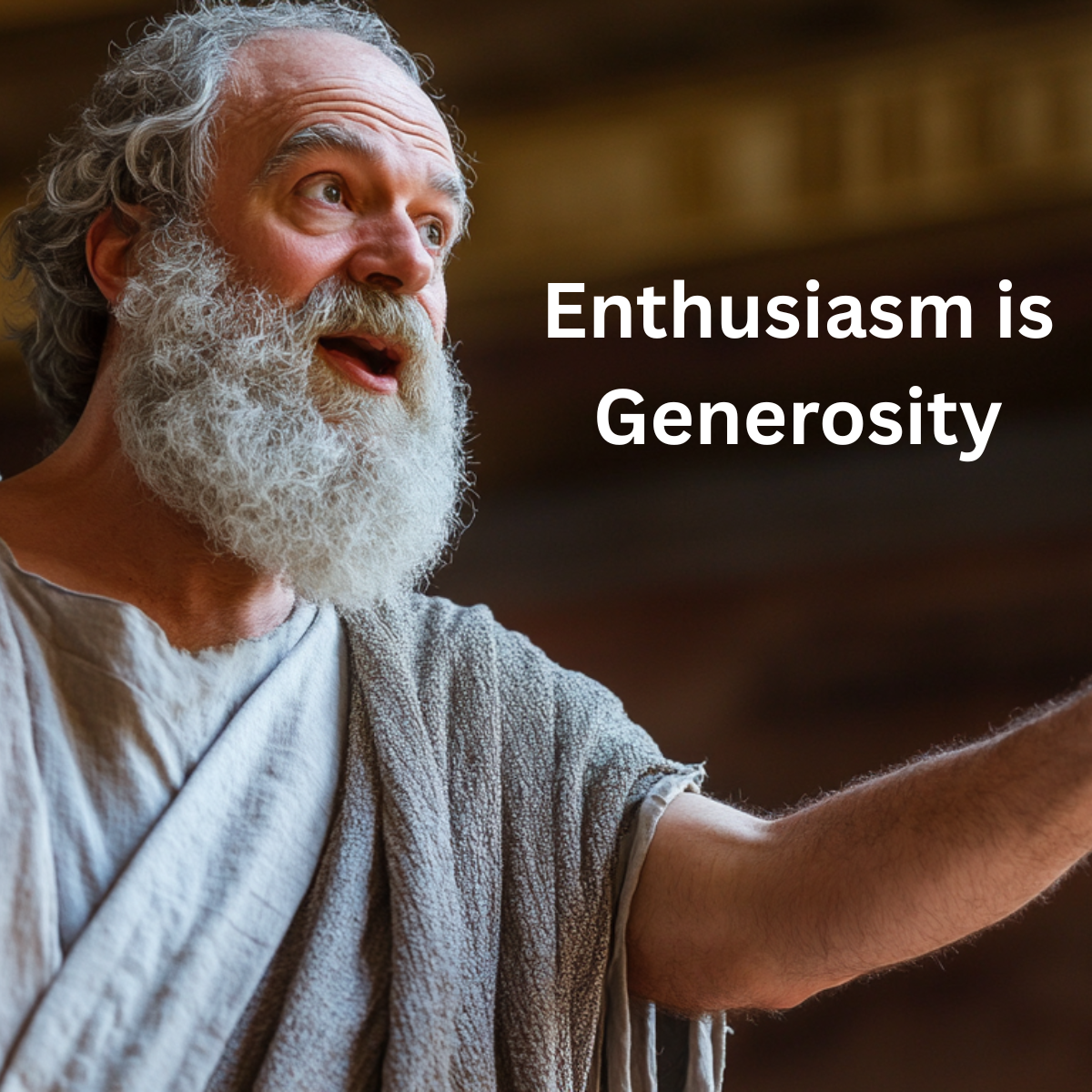Interestingly enough, the word enthusiasm comes from the concept of enthousiasmos, which means, effectively, “possessed by a god.” Perhaps less controversially, we might say the person is divinely inspired. We can tell when someone is subject to this possession. They are the ones who throw themselves into a project with joy and drive. They speak about a topic with passion and energy. They are able to persist through challenges because they care deeply about their mission. Enthusiasm is contagious—when one person shows it, others are often drawn in and motivated as well. It’s one of those human qualities that makes teams stronger, learning more enjoyable, and work more meaningful.
In essence, enthusiasm as possession is a great motif because the original person acts in a fanatical manner, as if they are indeed possessed by a divinely inspired pursuit—and then they begin to infect others with the same attitude, much like you might see happening at a religious revival. This is how most people view enthusiasm: the one person who starts the process, rallies everyone around a cause, and then convinces them to “charge the hill,” so to speak.
However, there is another side to enthusiasm that we often overlook. This is enthusiasm as a form of professional generosity. In situations where your own excitement isn’t naturally high, showing enthusiasm can be an act of service to those around you. I’ll use an example from my early days working for a non-profit organization.
I was working as a quasi-salesperson for a passionate and charismatic leader. The idea was to get donations for this organization. One day we had a training, and I was in charge of teaching the new campaign team how to properly “close” someone on a new donation commitment. I decided to do a role play where I pretended to be asking a couple for a donation. The “couple” played along, and I was able to successfully ask and receive their commitment for a donation. When they said yes, I responded with, “Great,” and then proceeded to move to the next step in our five-step methodology.
Just as I finished saying “Great,” a hand came down on my shoulder. Standing above me was the leader of the organization. He looked down at me with tears in his eyes. He said, “I never want to see you accept a donation to this organization with such a dispassionate response again.” The room went silent. The leader told me to do the role play again. Then again. Then again. Then again. After several attempts, when my fake couple said yes to the donation request, I was crying like a baby. I was so grateful for their donation that I was practically kissing their feet. I was overjoyed at the prospect of receiving a fake donation from a fake couple during a fake role play.
This taught me a profound lesson about enthusiasm. Enthusiasm is not just a good thing to do—it is a responsibility. A sales prospect will want to engage and be glad they did so when you show enthusiasm. A team will be more motivated and will want to work harder when you exhibit this type of passion. Your audience will listen more attentively when they feel that you are engaged.
Importantly, authenticity matters. While you can absolutely show enthusiasm when needed, it’s best to avoid coming across as false or forced. One way to keep it authentic is to focus on something real you can be enthusiastic about—maybe not the whole project, but one small part of it, the team’s effort, or the customer impact. However, you can indeed also generate enthusiasm when you need to.
While true enthusiasm comes from genuine interest or passion, you can also generate outward signs of enthusiasm (energy, expression, engagement) through intentional effort. There’s strong evidence that acting enthusiastic can actually make you feel more enthusiastic. Smiling, using animated gestures, speaking with energy—these physical cues send feedback to your brain that lifts your emotional state. Is this “faking it until you make it”? Perhaps. Or maybe it is simply playing your role—well.
Enthusiasm is a force multiplier. Whether born of deep passion or offered as a deliberate gift to those around you, it has the power to move hearts and drive action. We should not wait for enthusiasm to strike us from above—we should learn to summon it when the moment calls for it. Sometimes that means allowing ourselves to be “possessed” by a great purpose. Sometimes it means choosing to show up with energy and joy because others depend on us to do so. Either way, enthusiasm is one of the most generous—and effective—tools we can bring to any endeavor.




